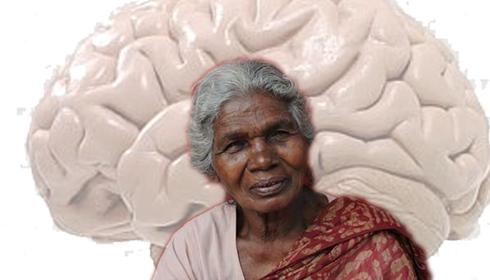
Over 10 million people in India may be living with dementia: Study
More people in India are living with dementia, a group of symptoms that affects memory, thinking and social abilities severely enough to interfere with daily life, than previously thought, a collaborative study by researchers from the University of Surrey, University of Southern California, University of Michigan, and All India Institute of Medical Sciences has found.
According to the study's findings, recently published in the journal Neuroepidemiology, the prevalence rate of dementia in adults aged 60 or over in India could be 8.44%, equating to 10.08 million older adults in the country, which is significantly higher than previous estimates.
It may be recalled that a previous collaborative study published in the journal Alzheimer’s & Dementia had estimated that 7.4% of the Indian population over the age of 60 years, equivalent to 8.8 million live with dementia in the country and that the condition is more prevalent among women and rural people.
Researchers used an artificial intelligence (AI) technique known as semi-supervised machine learning to analyse data from 31,477 older adults in the current study, which is the first of its kind, found that the prevalence rate of dementia in adults aged 60 or over in India could be 8.44%, which translates to 10.08 million older people.
The findings indicate that the prevalence of dementia in India could be more in line with prevalence rates for developed countries, including the United States and the United Kingdom, the researchers said.
Commenting on their findings, Dr Haomiao Jin, co-author and Lecturer in Health Data Sciences at the University of Surrey, said, “Our research was based on the first and only nationally representative ageing study in India with more than 30,000 participating older adults in the country.”
“AI has a unique strength in interpreting large and complex data like this, and our research found that the prevalence of dementia may be higher than prior estimates from local samples,” he added.
The research team developed an AI learning model, trained on data consisting of a 70% labelled dataset with dementia diagnoses from a novel online consensus. The remaining 30% of the data was reserved as a test set to assess the AI's predictive accuracy. The AI taught itself to predict dementia status for unlabelled observations without dementia diagnoses in the dataset.
Professor Adrian Hilton, Director of the Institute for People-Centred AI at the University of Surrey said, “As we are seeing with this research, AI has a huge potential to discover patterns in complex data, improving our understanding of how diseases impact people across very different communities to support the development of precision medical interventions to save lives.”